Dreaming of hitting the trails, weaving through roots and rocky paths, to experience that unique feeling of freedom?
Whether you're a beginner or already hooked, here’s a condensed guide full of expert and enthusiast tips to help you approach your next run or goal with confidence.
And if you're looking for a worthy challenge, the Défi des Muverans offers three mountain trail races tailored to different levels: from the classic Ovronnaz–Rambert to the full 60 km course for the most seasoned runners — the perfect opportunity to find your next adventure, no matter your experience.

1. Gear: Your Ally on the Trails
One thing is clear: suitable shoes and technical clothing are an absolute must. After that, it’s all about distance, terrain, and weather:
-
For short distances: a pair of running shoes, shorts, a breathable t-shirt, water, …
-
For long trails or mountain runs: a hydration pack for water, a windbreaker or waterproof jacket, poles to ease the strain on your legs during climbs, and even a headlamp if you might be caught out after dark.
-
Accessories vary from person to person: sunglasses, cap, belt, lightweight gloves, sunscreen, …
Of course, it’s important to always test your gear before race day to avoid unpleasant surprises!
There is no miracle or perfect product—everyone has to find the gear that makes them comfortable and safe. It’s perfectly normal to try different items on the trail before finding what suits you best!
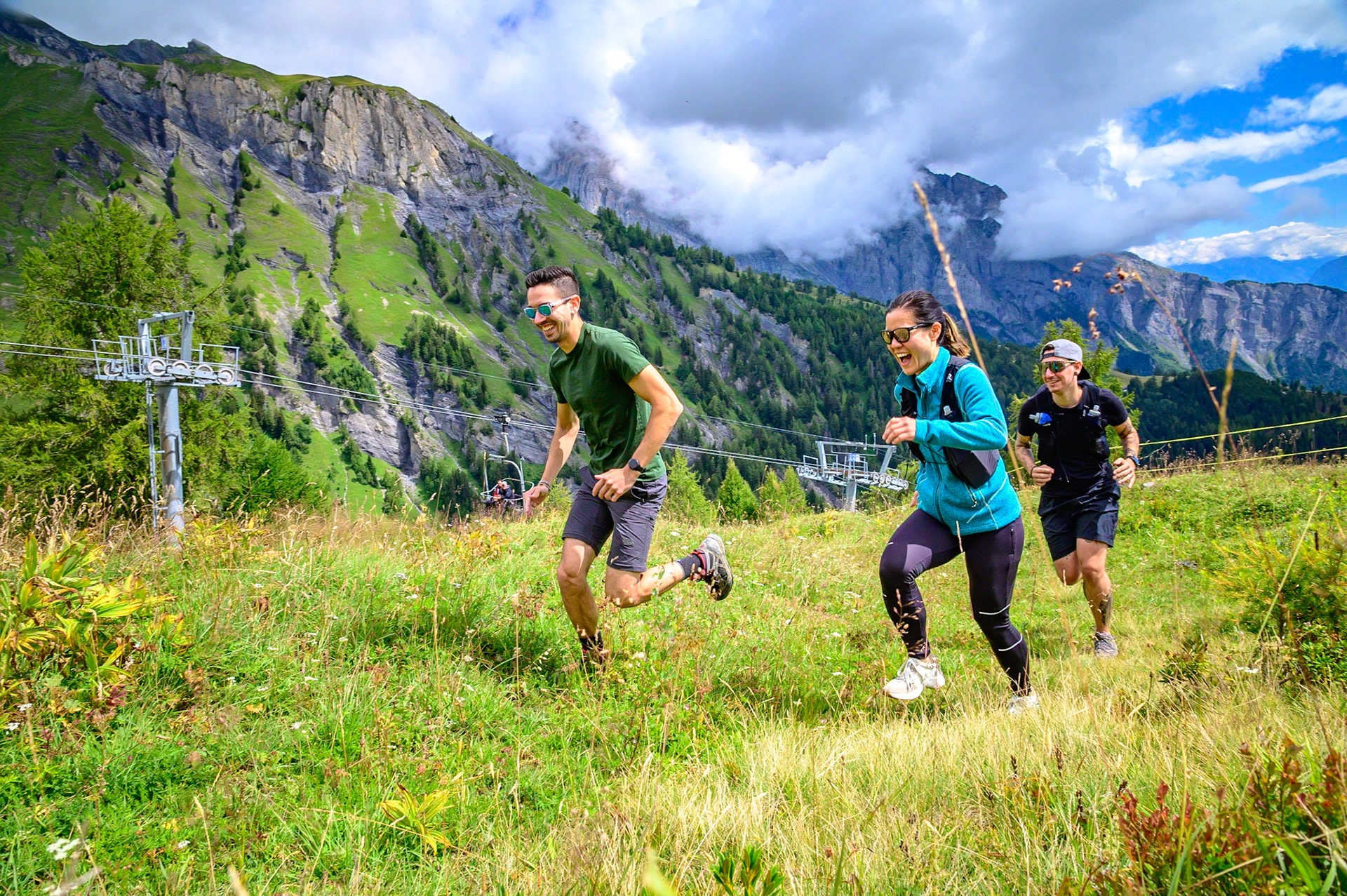
2. Getting Started Right: Progress with Enjoyment
As in many sports, gradual progression and consistency are your best allies. Start by hiking, add running segments, and slowly increase both duration and elevation gain. Gradual progression is key to avoid burning out early and, above all, to keep your motivation: if you push too hard at the start, your body won’t adapt well, it will become too difficult, and you’ll quickly lose interest.
Feeling unmotivated? Nothing beats setting a small goal, like a race in your region: it gives you purpose and lets you share great moments with fellow enthusiasts. This is exactly what the different races of the Défi des Muverans offer — a perfect setting to set an achievable goal according to your level.
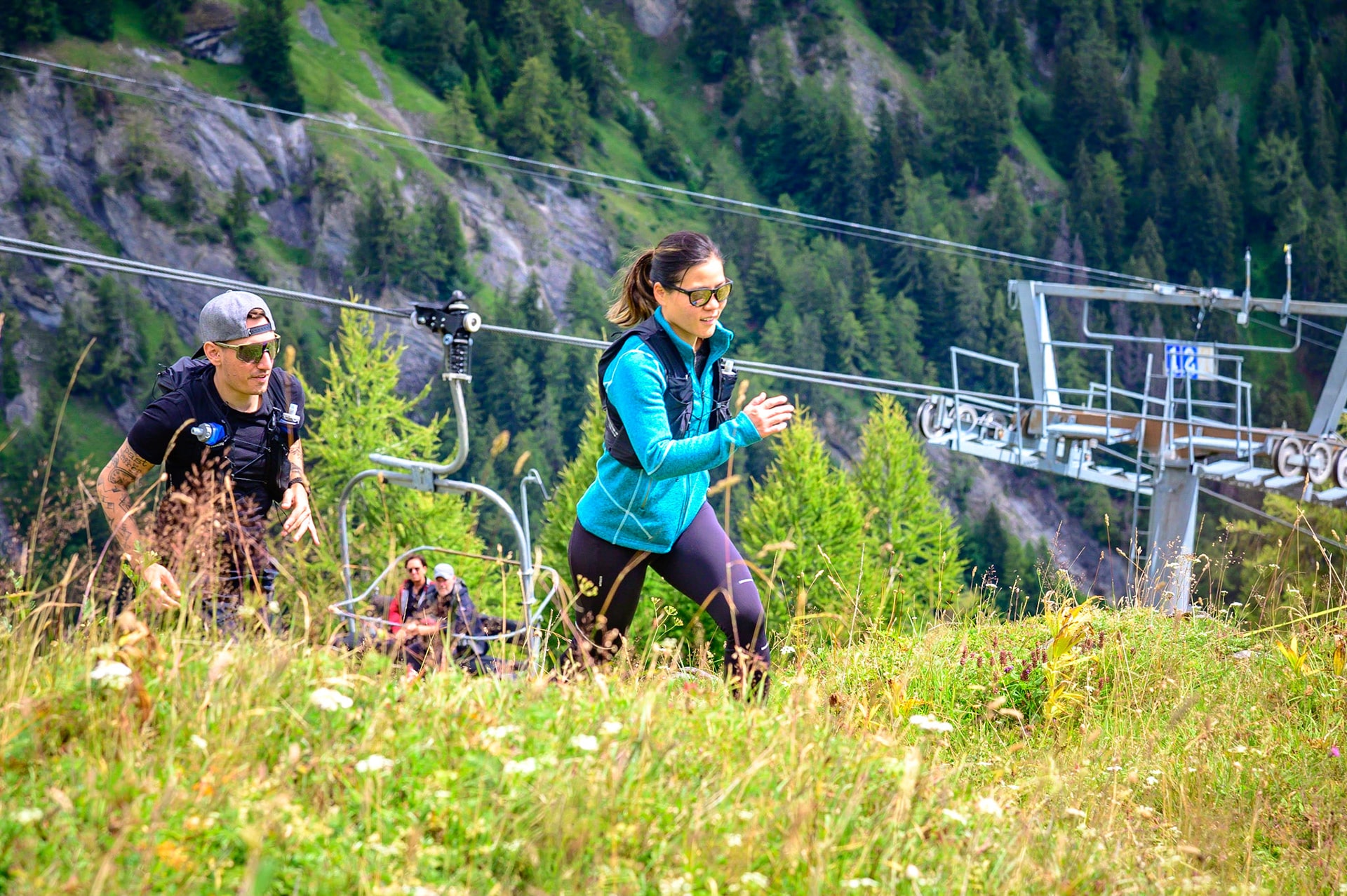
3. Structuring Your Training: Balancing Enjoyment and Strategy
To progress effectively, nothing beats good organization. Depending on your available time and goals, planning your training becomes a real asset. Every trail runner is unique: a body, mind, and schedule all their own. It’s therefore important to create a personalized program that truly fits you. To help you get started, here are some guidelines to adapt to your needs:
-
2 to 4 varied running sessions (short and long, flat and hills)
-
1 strength training session (essential to prevent injuries)
-
Rest to absorb the training
If you are aiming for a big event (like the Défi des Muverans), it’s recommended to prepare a structured plan over several months, with a gradual increase in volume.
And why not get coached? This is the best way to personalize your program. A coach will tailor a plan specifically for you, based on your desires and needs, but above all, adapted to your body. This will help you avoid unnecessary injuries caused by overloading.
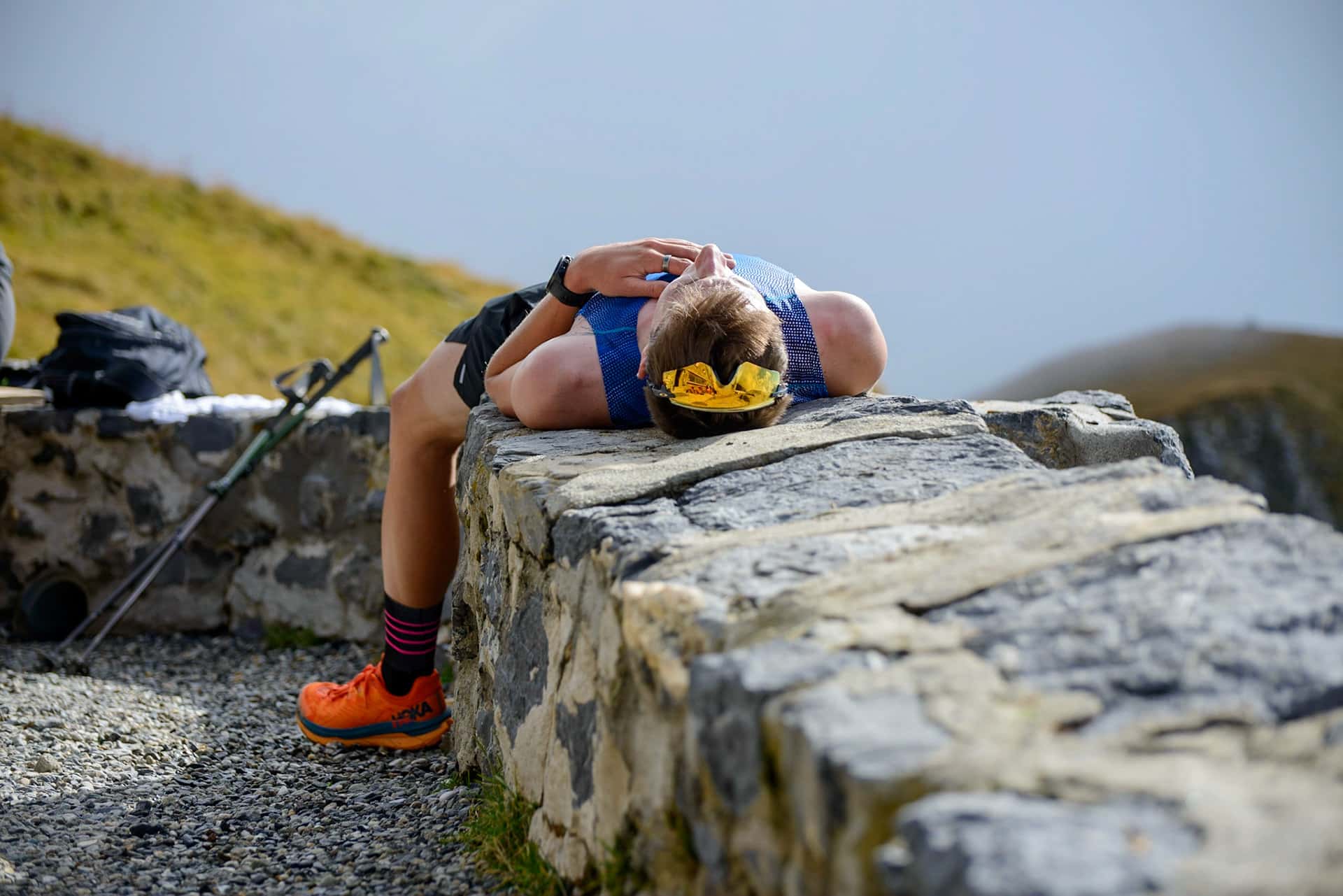
4. Avoiding Pitfalls: Common Mistakes
Some of the most frequent mistakes beginners make:
-
Increasing volume or intensity too quickly;
-
Neglecting strength training;
-
Not testing gear and nutrition during training;
-
Thinking you can prepare for a long trail in just a few weeks;
-
Not taking enough time to rest.
Take your time, listen to your body, adapt your goals to your situation, and don’t hesitate to consult a professional if pain persists.
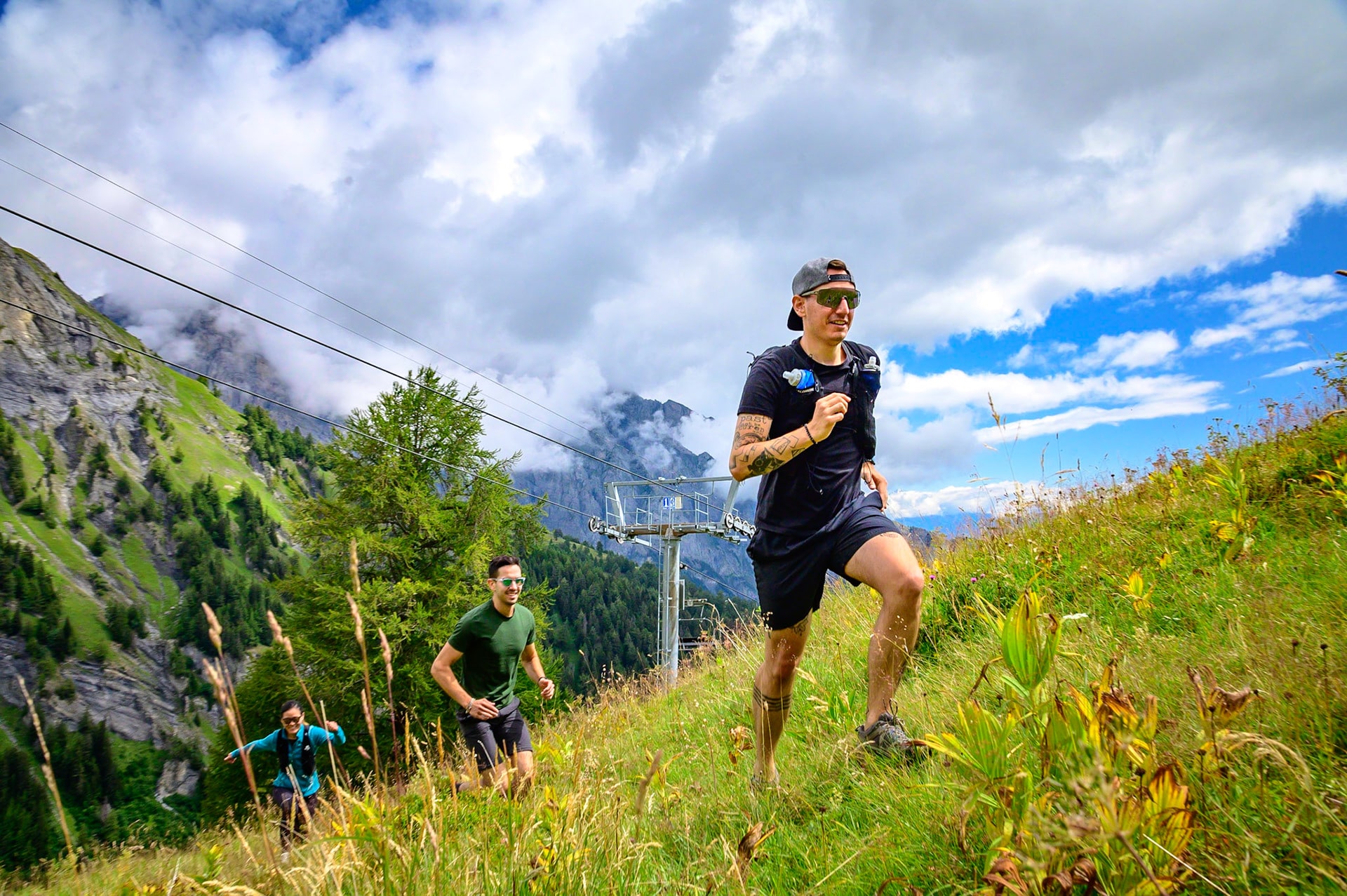
5. Nutrition and Hydration: The Fuel for Your Success
-
Before training: a light meal, rich in carbohydrates and easy to digest, 2-3 hours prior;
-
30 to 60 minutes before training: a small snack (banana, applesauce, energy bar) if needed;
-
During effort: drink regularly, small sips every 10-15 minutes, without waiting to feel thirsty. Be careful not to overdrink to avoid hyponatremia (low blood sodium), which is just as dangerous as dehydration! You can use isotonic drinks to compensate for electrolyte loss. For food, consume refreshments (gels, bars, puree, applesauce) that won’t upset your digestive system to avoid problems. Carbohydrate intake is important and often found in gels.
-
After training: eat within the hour following your session, including carbohydrates and proteins to rebuild muscles. And don’t forget to drink plenty!
Gels, bars, compotes, dried fruits… just like gear, it’s important to test everything beforehand. It would be a shame to have digestion problems on race day!
6. The Mindset: Your Best Engine
All trail runners agree: mindset is key! When fatigue sets in, try to:
-
Break your race into small sections: one aid station at a time;
-
Stay positive: think of things that give you energy and strength—it always helps!
-
Use mantras, music, or simply focus on the scenery, which is part of the sport’s appeal!
-
Visualize the finish line to stay motivated.
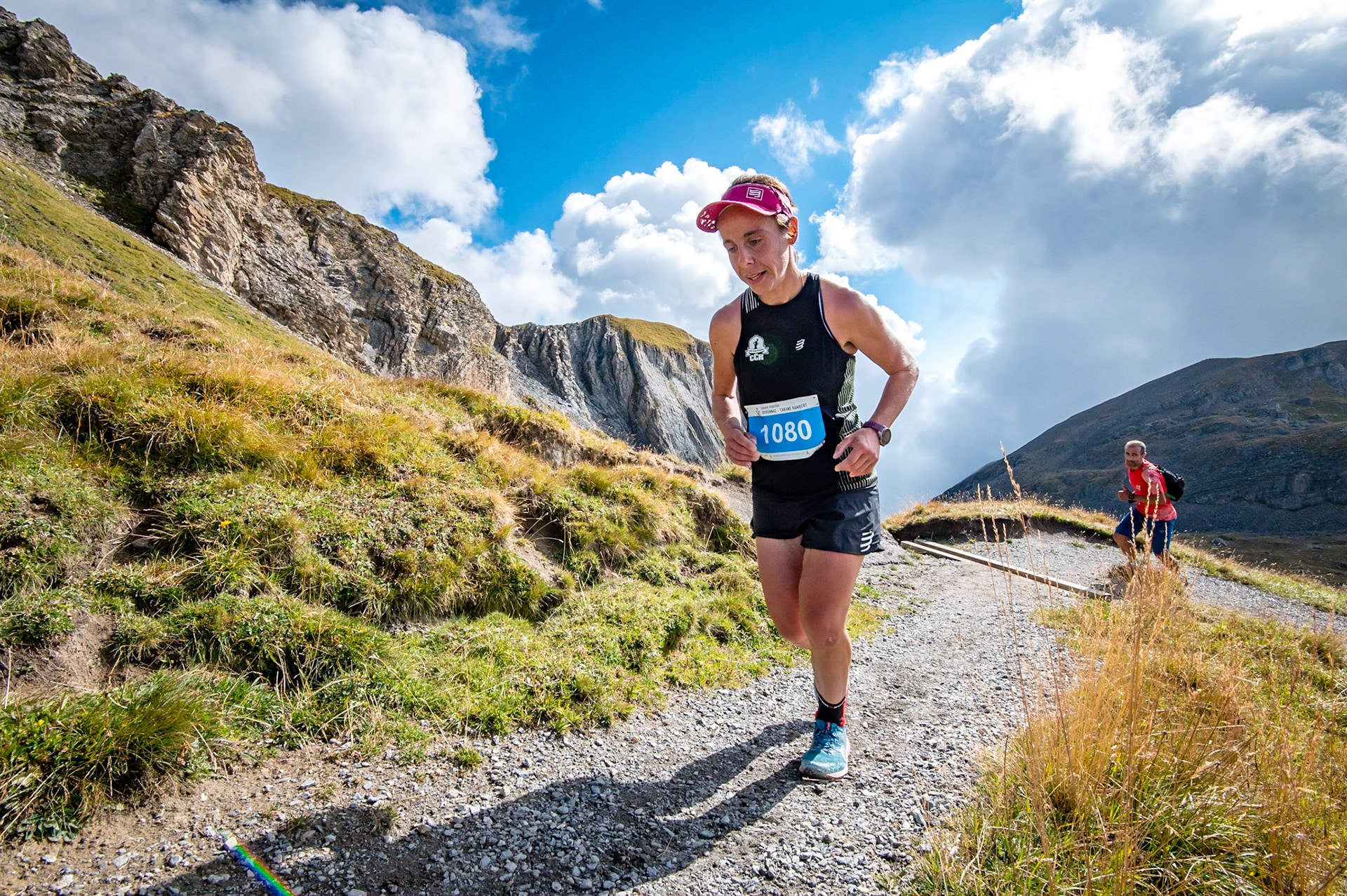
7. Recovery: Respect Your Body
After a trail run or a tough training session:
-
Drink and eat quickly to recharge your energy;
-
Rest and get enough sleep;
-
A massage or self-massage can be a real plus.
And above all, give your body the time it needs before starting again!
8. Preparing for a Challenge Like the Défi des Muverans
Now that you have (almost) all the keys to success and a program tailored to your needs, why not consider a race!
In our beautiful mountain regions, there’s no shortage of opportunities: there’s always a trail somewhere, a summit to climb, a challenge to take on.
And if you’re ready to push yourself, we have exactly what you need: the Défi des Muverans: 60 km of trail running in an exceptional setting, around the Muverans. See you at the start line on September 6!
More info and registration: defidesmuverans.ch
A big thank you to Michaël Tauxe, Emily Vaudan, Christelle Bianco, and Mathieu Lambert for their expertise and valuable help in writing this article.

